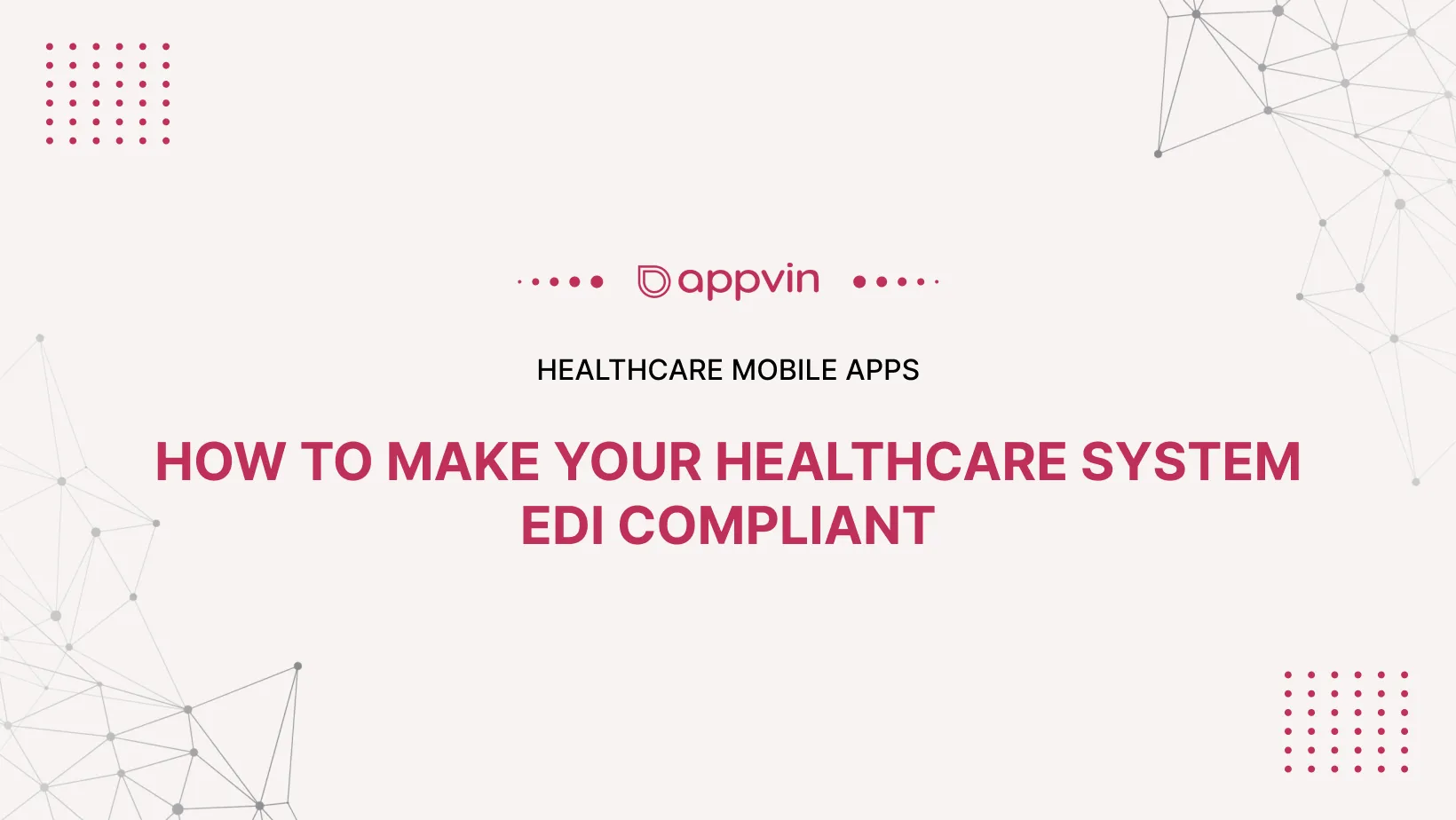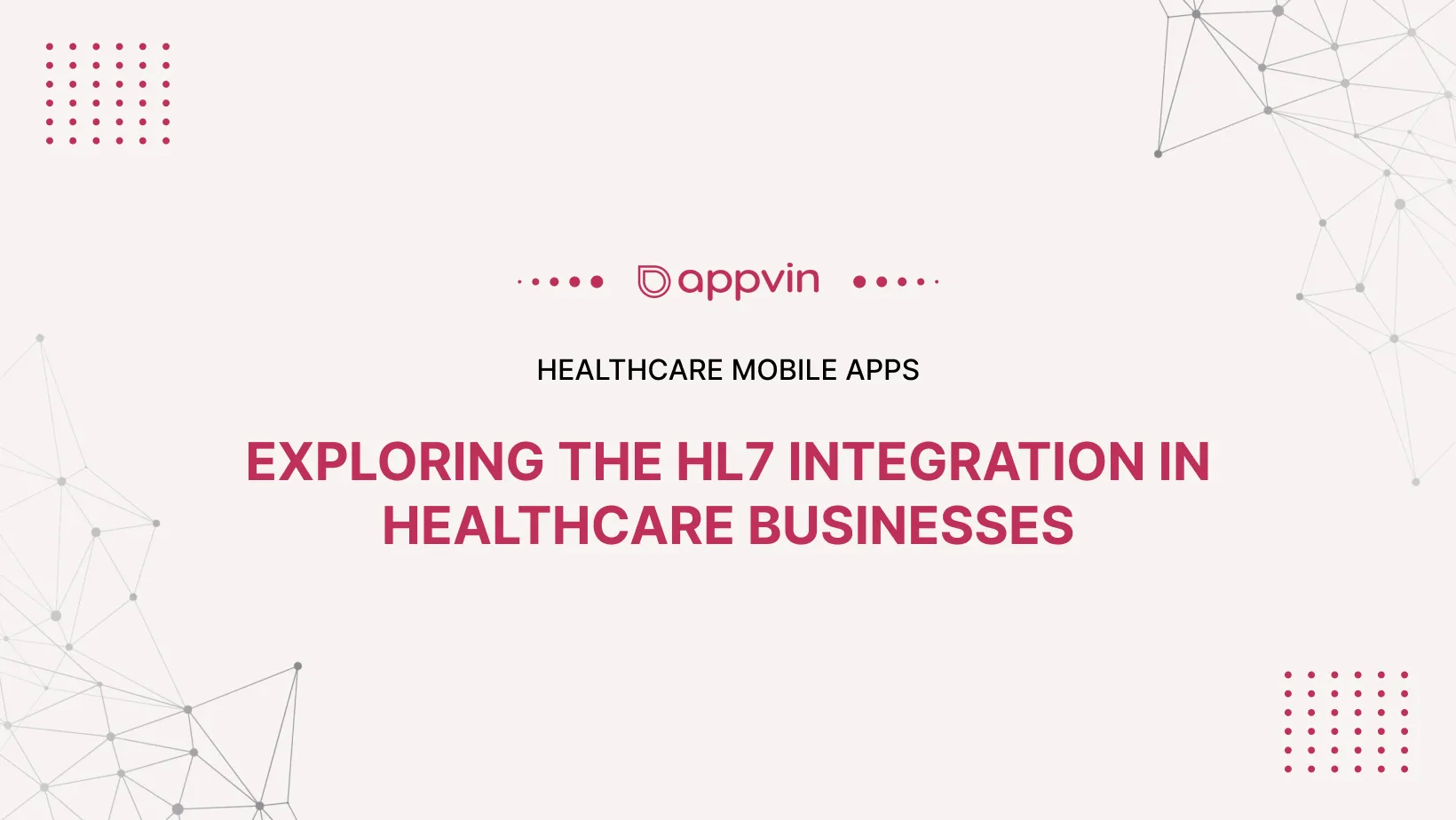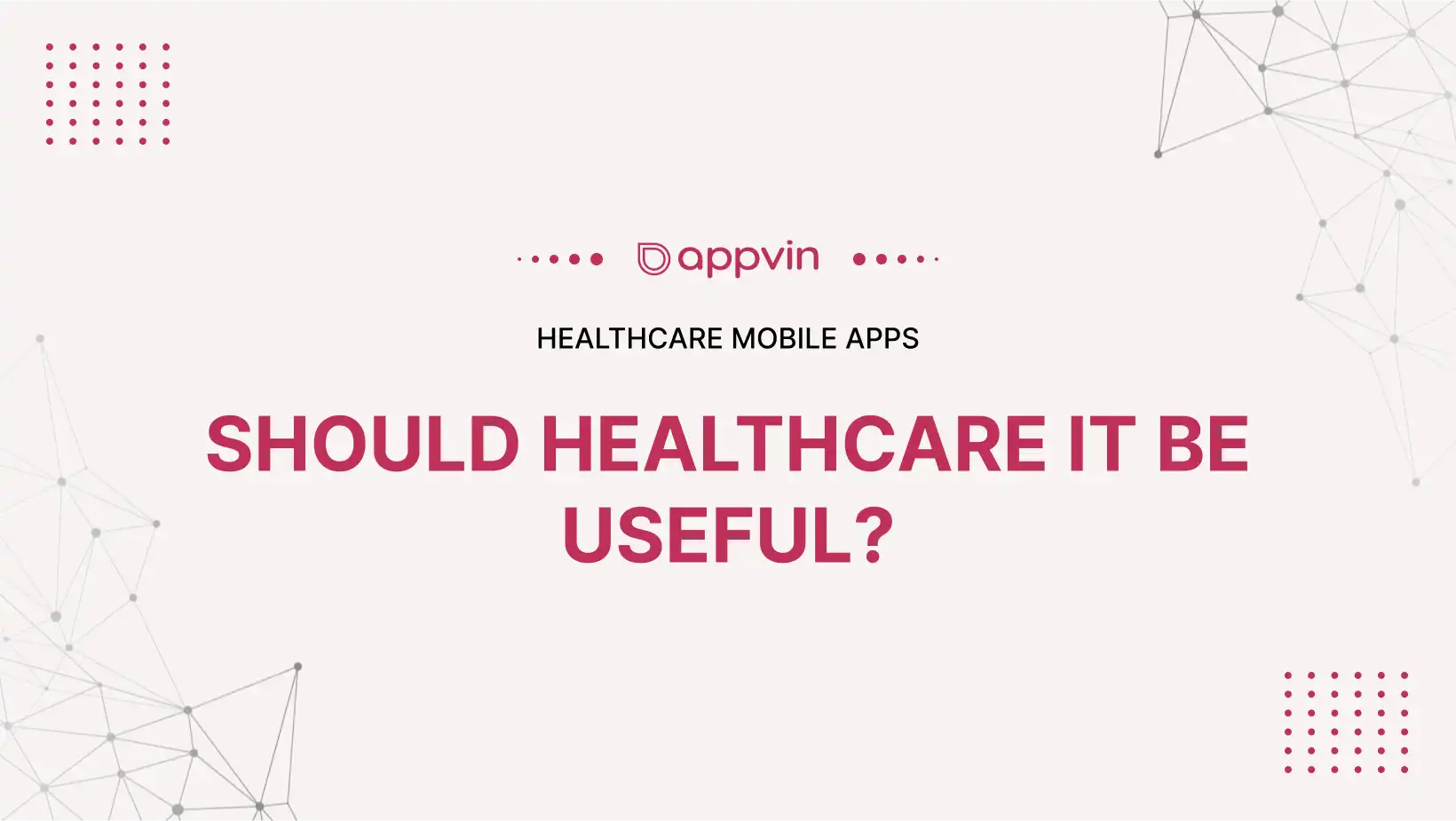The world of healthcare has undergone significant transformations. Thanks to mobile apps, it is undergoing a major transformation that is changing how doctors and patients interact, manage health data, and access healthcare services. Mobile health, or Health apps, are giving individuals the ability to manage their health in ways that were previously beyond reach. From monitoring heart rate to tracking diet and exercise, mobile apps are making health care more convenient, personalised, and accessible.
Join us as we explore the exciting potential of Mobile App Development for Healthcare and
potential obstacles of Health apps in this blog post. Get a glimpse into how these apps are revolutionising the future of healthcare.

Mobile apps are revolutionising healthcare in several key ways
Healthcare apps are revolutionising the world.
Have you been introduced to the incredible benefits that healthcare apps have to offer for you and your family?
With features like virtual appointments with doctors, medication tracking, and overall well-being monitoring, these apps have everything you need. From providing virtual consultations with doctors to assisting in medication management and even keeping an eye on your overall health, these apps have got you covered.
In fact, healthcare apps are revolutionising the way we access and receive healthcare.
Here are some of the ways they are making a positive impact:
Improved Access:
Healthcare apps make it possible for doctors to reach out to patients who live far away or have difficulty travelling. This is beyond thrilling as it opens the door for more individuals to receive exceptional healthcare, particularly those residing in remote regions and underdeveloped nations. Apps with video calling features allow doctors to see and talk to patients without being in the same room.
Patient Engagement:
Healthcare apps empower patients to take charge of their own health. They offer features like medication reminders, appointment booking, and health tracking that help patients stay on top of their health goals. This also improves their health knowledge and awareness.
Data Collection:
Wearables and health apps enable patients to easily collect and share health data with their doctors. This dataset presents essential physiological measurements such as heart rate, blood pressure, sleep patterns, and others This helps doctors monitor their patients’ health and provide preventive care and personalised treatment.
Cost Reduction:
Mobile health apps save money for both patients and providers by improving preventive care and reducing hospital visits. They also optimise provider time by allowing them to see more patients virtually.
Healthcare apps are not only convenient and user-friendly, but they also have the potential to improve the quality and equity of healthcare around the world. As more people adopt mobile technology, healthcare apps will become an integral part of our lives.
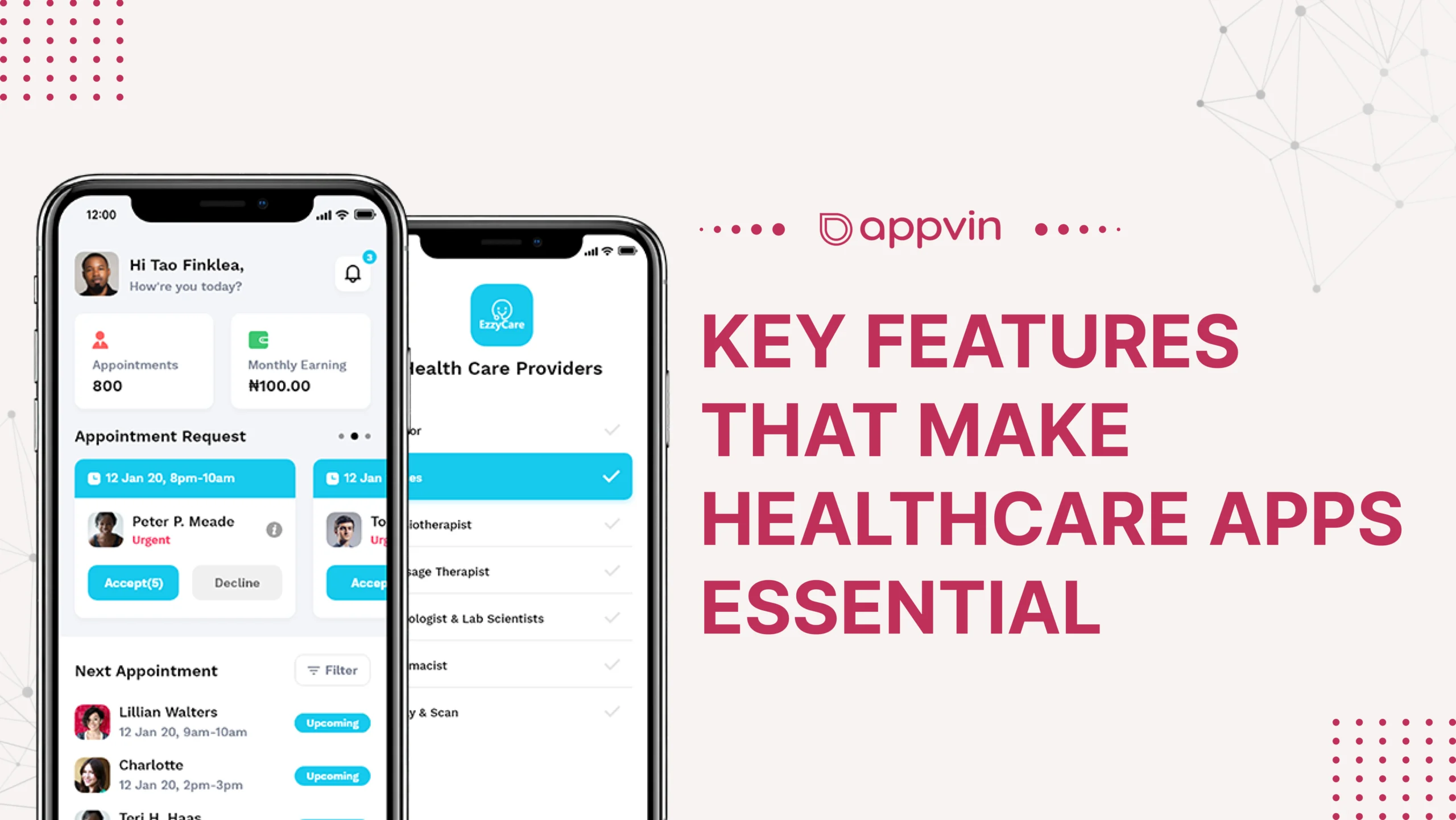
Key Features That Make Healthcare Apps Essential:
How to Make Your Health App Stand Out from the Crowd
Healthcare mobile apps are not just convenient tools for patients and providers. They are also powerful ways to engage users, improve outcomes, and reduce costs. But with so many health apps on the market, how can you make yours stand out?
Here are some essential features that every health app should have:
EHR Access:
Give your users the ability to view their electronic health records anytime, anywhere. This way, they can access important information like test results, prescriptions, and appointment details. This also empowers them to take charge of their own health.
Appointment Scheduling:
Make it easy for your users to book and manage their appointments. Send them reminders and notifications to ensure they don’t miss their follow-ups. This will increase patient retention and satisfaction for your providers.
Remote Monitoring:
Connect your app with wearables and sensors that can monitor vital signs and health indicators. This will allow your providers to access real-time patient data and intervene when needed. This will also enhance patient safety and compliance.
Medication Tracking:
Help your users stay on top of their medication regimen. Send them alerts and reminders to avoid missed doses. Allow them to log their medication intake and track their progress. This will improve adherence and effectiveness.
Symptom Tracking:
Enable your users to record and track their health issues, mood changes, diet, and other factors. This will help your providers make more accurate diagnoses and tailor treatments accordingly. This will also increase patient engagement and awareness.
Video Consultations:
Offer your users the option of virtual visits with their doctors. This will reduce the need for hospital visits and save time and money. Video calling will also make telehealth more personal and interactive.
Customizable Interface:
Allow your users to customise their app dashboard with the health data that matters most to them. This will motivate them to monitor their health goals and achievements. This will also create a more user-friendly and appealing app experience.
These are some of the key features that can make your health app more useful and engaging for your users. By incorporating these features, you can create a health app that stands out from the crowd.
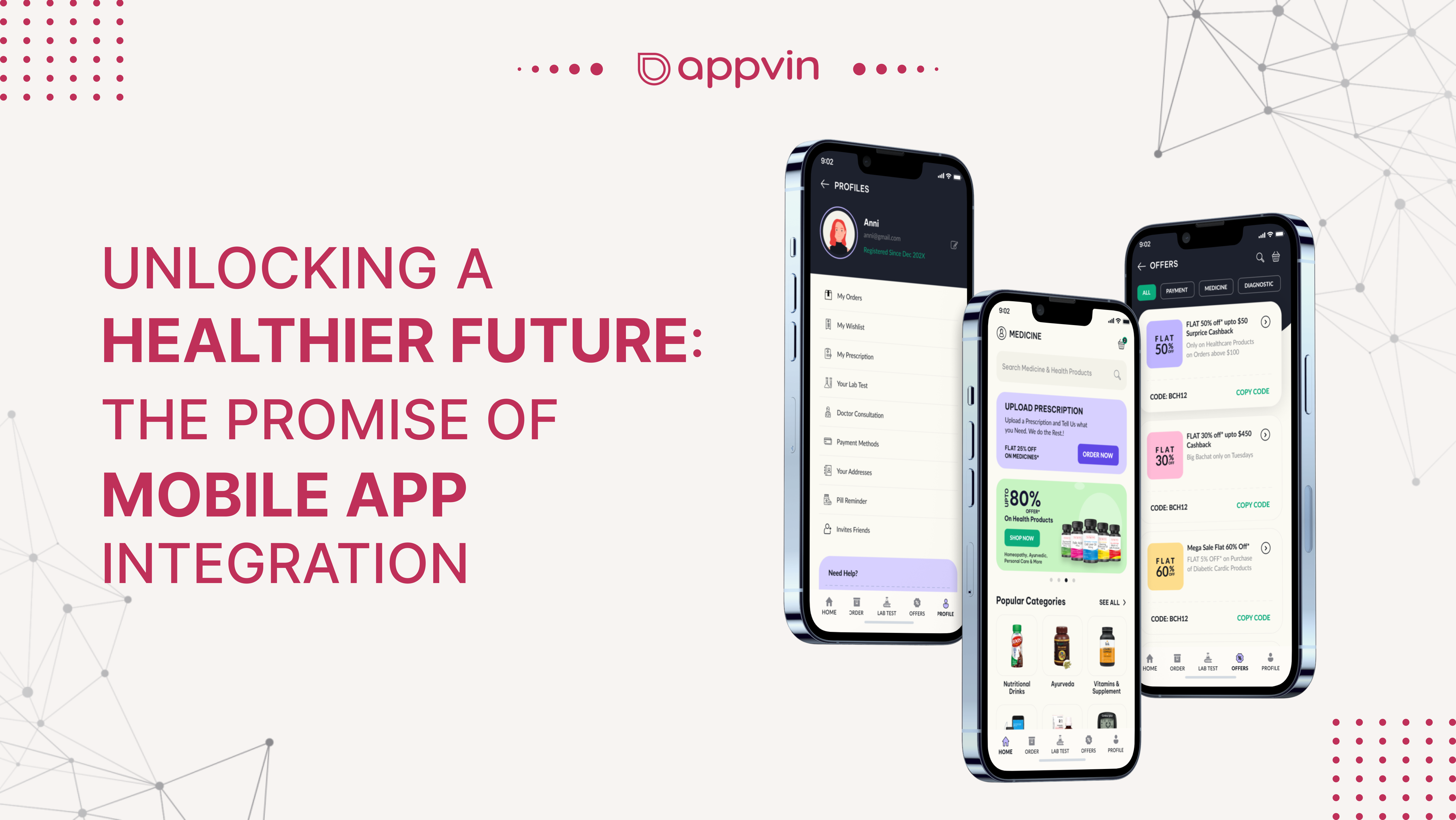
Unlocking a Healthier Future: The Promise of Mobile App Integration
How to Unlock the Power of Mobile Health with Integrated Apps
Mobile health apps are amazing tools that can help you manage your health and wellness. But did you know that they can do even more when they work together? Integrated apps are apps that can communicate and share data with each other.
Here are some examples of how integrated mobile health apps can transform healthcare:
Imagine wearing a device that tracks your heart rate, blood pressure, blood sugar, and other vital signs. The device sends this data to your healthcare app, where your doctor can monitor it remotely. If something is wrong, your doctor can contact you and adjust your medications or treatment plan without you having to visit the clinic.
Imagine booking an appointment with your doctor using their app. The app automatically adds the appointment to your personal calendar and sends you reminders before the date. You don’t have to worry about missing or forgetting your appointment.
Imagine ordering a refill of your prescription using your pharmacy app. The app notifies your doctor’s app that you have refilled your medication. Your doctor can see how well you are following your medication regimen and intervene if needed.
Imagine having access to telehealth services from different providers on one app. You can consult with doctors and specialists from different hospitals and clinics without leaving your home.
These are just some of the ways integrated mobile health apps can create a seamless healthcare experience. They enable information exchange among patients, providers, pharmacies, labs, insurers and other stakeholders.
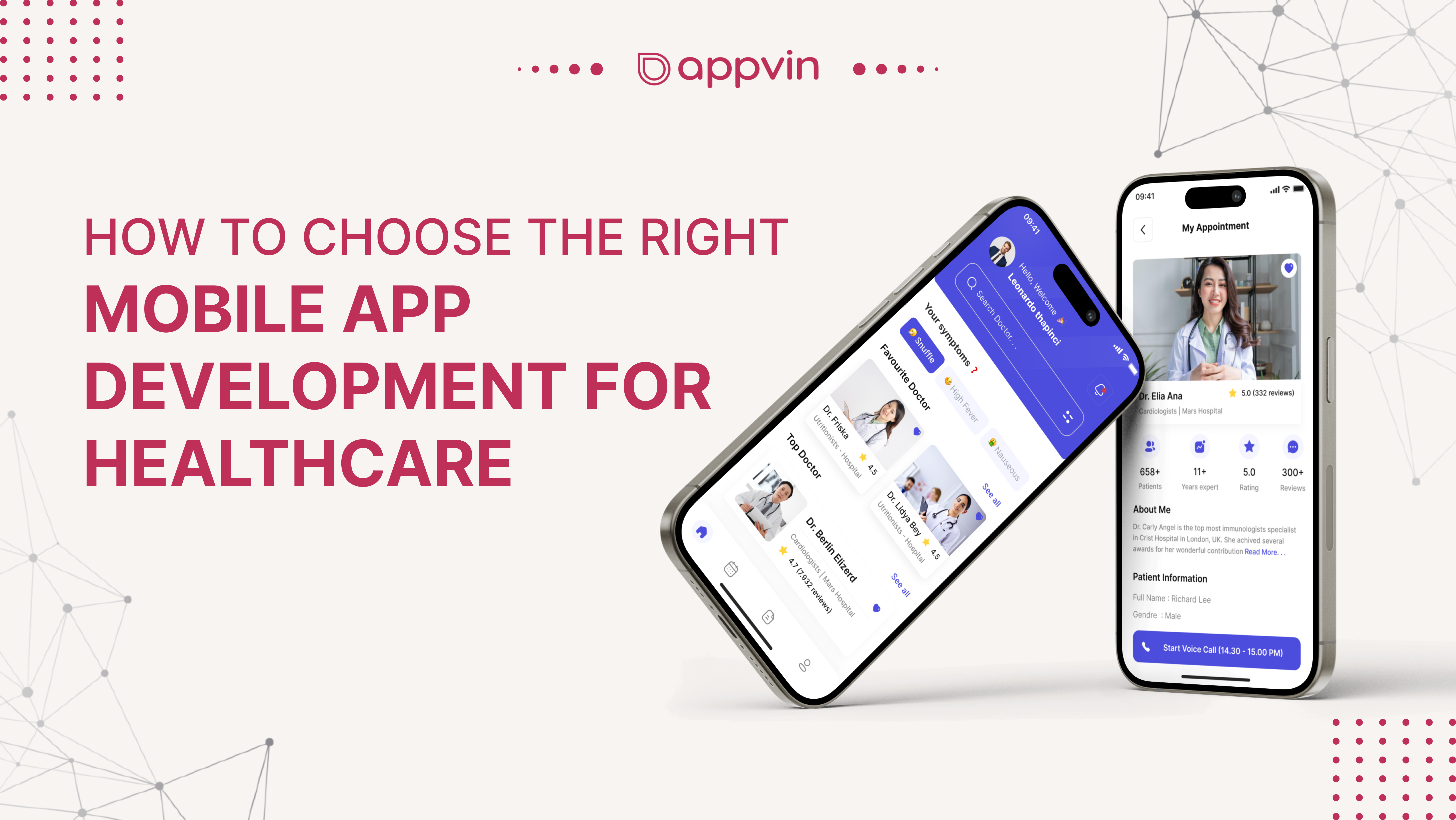
How to Choose the Right Mobile App Development for Healthcare
Healthcare mobile apps are transforming the way patients and providers interact, communicate, and manage health data. They offer convenience, efficiency, and better outcomes for all stakeholders. However, developing a Right Mobile App Development for Healthcare is not a simple task. It requires a deep knowledge of the healthcare industry, its regulations, and its challenges. Not every app development company can deliver a high-quality healthcare app that meets the needs and expectations of users.
So how do you find the right partner for your healthcare app project?
Here are some essential qualities to look for:
Healthcare Expertise:
You need a partner who understands the healthcare domain and has experience working with different types of healthcare organisations, such as hospitals, insurers, clinics, etc. They should be familiar with HIPAA compliance and other relevant laws and standards that govern data security and privacy in healthcare.
Technical Capabilities:
Your partner should be proficient in the latest mobile technologies and platforms, such as iOS, Android, Flutter, React Native, etc. They should also be able to integrate your app with various healthcare systems and devices, such as EHR software, wearables, sensors, etc.
Design Focus:
Your partner should have a user-centric design mindset and create an app that is intuitive, engaging, and easy to use for both patients and providers. They should conduct user research, testing, and feedback to ensure your app meets the needs and preferences of your target audience.
Communication:
Your partner should communicate with you regularly and transparently throughout the app development process. They should adopt an agile methodology that allows for frequent iterations and feedback loops. They should also keep you updated on the progress, challenges, and risks of your project.
Ongoing Support:
Your partner should not abandon you after the app is launched. They should provide ongoing technical support and maintenance to ensure your app runs smoothly and securely. They should also help you with app updates, enhancements, and bug fixes as needed.
Appvin Technologies is a trusted healthcare mobile app development services company, with expertise in Right Mobile App Development for Healthcare, they ensure seamless development from concept to deployment. Their goal is to deliver high-quality apps that enhance user experiences and meet business goals effectively.
Our comprehensive services include:
– Consulting on healthcare app features and functionality
– UI/UX design that focuses on user engagement and satisfaction
– Development using cutting-edge technologies and best practices
– Robust data security and compliance with healthcare regulations
– Seamless integration with healthcare systems and devices
– Support for app launch, marketing, and post-launch maintenance
At Appvin, we combine our healthcare expertise, technical skills, and customer-centric approach to create mobile apps that empower healthcare organisations to achieve their goals. Whether you want to improve patient care, streamline workflows, increase revenue, or enhance brand reputation, we can help you build the right Mobile app development for healthcare that delivers results.
FAQs
Q: How can mobile apps improve doctor-patient relationships?
A: Mobile apps are not just tools for entertainment or productivity. They can also enhance the quality of healthcare by fostering better doctor-patient relationships. How? By improving communication. Apps can offer features like appointment reminders, secure messaging, and video calls that allow doctors and patients to stay in touch more frequently and conveniently. This can build trust, rapport, and information sharing, which are essential for effective healthcare.
Mobile App Development for Healthcare is easy or not?
Mobile App Development for Healthcare is not a simple task. It requires overcoming several challenges, such as:
– Data security:
Healthcare apps handle sensitive personal and medical data that need to be protected from unauthorised access or breaches. Apps need to comply with regulations like HIPAA and GDPR and use encryption, authentication, and other security measures.
– Legacy integration:
Healthcare apps need to work with existing healthcare systems, such as electronic health records, billing systems, or lab equipment. This can pose technical difficulties and compatibility issues that need to be resolved.
– User interface:
Healthcare apps need to cater to a diverse range of users, such as doctors, nurses, patients, caregivers, etc. Each user group has different needs, preferences, and abilities when it comes to using an app. Apps need to design an interface that is easy to use, intuitive, and accessible for everyone.
– Patient engagement:
Healthcare apps need to keep users engaged over time, not just for one-time use. Apps need to provide value-added features, such as personalised feedback, gamification, social support, etc. that motivate users to stick with the app and achieve their health goals.
How can healthcare apps improve patient experience?
Patient experience is a key factor in healthcare quality and satisfaction. Healthcare apps can improve patient experience by making services more accessible, convenient, and personalised. For example:
– Accessibility:
Users can access healthcare services anytime, anywhere through their smartphones. They can book appointments, view test results, track health issues, manage medications etc. without having to visit a clinic or hospital.
– Convenience:
Users can save time and money by using healthcare apps. They can avoid long waits, travel costs, or paperwork by using digital services. They can also get instant answers or support through chatbots or online consultations.
– Personalization:
Users can get customised care through healthcare apps. They can receive tailored recommendations, feedback, or reminders based on their health conditions, preferences, or goals. They can also choose the features or services that suit their needs best.
What type of app features are best for remote patient monitoring?
Remote patient monitoring is a way of delivering healthcare services remotely using technology. It allows doctors to monitor patients’ health status and intervene when needed without requiring physical visits. Remote patient monitoring can benefit patients with chronic conditions, elderly people, or those living in rural areas.
To enable remote patient monitoring, apps need to have the following features:
– Connectivity:
Apps need to connect with wearable devices or sensors that collect and transmit health data from patients to doctors. Examples of such devices are blood pressure monitors, glucose metres, heart rate monitors etc.
– Data sharing:
Apps need to share the collected data securely and reliably with doctors or other authorised parties. Apps also need to allow users to access their own data and control who can see it.
– Chatbots:
Apps need to provide chatbots that can answer common questions or concerns from users or provide guidance on how to use the app or devices.
– Alerts:
Apps need to send alerts or notifications to users or caregivers when there is an abnormality in the data or when an action is required. For example, an app can alert a user when their blood pressure is too high or when they need to take their medication.
– Visualisation:
Apps need to provide visualisation tools that can help users understand their data better and track their progress over time. For example, an app can show graphs or charts that display trends or patterns in the data.
These features can help users manage their health better and receive timely care from doctors.
How can healthcare providers choose the right Mobile app development for healthcare features?
Choosing the right Mobile app development for healthcare features is crucial for creating a successful healthcare app that meets the needs of both providers and patients. Here are some steps that providers can follow:
– Identify patient pain points:
Providers should identify the main problems or frustrations that patients face when accessing or receiving healthcare services. For example, long wait times, lack of information, poor communication etc.
– Analyse current in-person services:
Providers should analyse their current in-person services and see how they can be improved or replaced by app features. For example, an app can offer online booking, digital prescriptions, or telemedicine instead of physical visits.
– Identify areas for better engagement or information exchange:
Providers should identify the areas where they can enhance the engagement or information exchange with patients via an app. For example, an app can offer feedback, reminders, or education to patients to improve their adherence or outcomes.
– Survey patients:
Providers should survey their target patient groups and ask them about their needs, preferences, or expectations from a healthcare app. They should also test their app features with real users and get feedback on usability, functionality, and satisfaction.
By following these steps, providers can choose the right Mobile app development for healthcare that solves major patient pain points and aligns with their clinical workflow needs.


